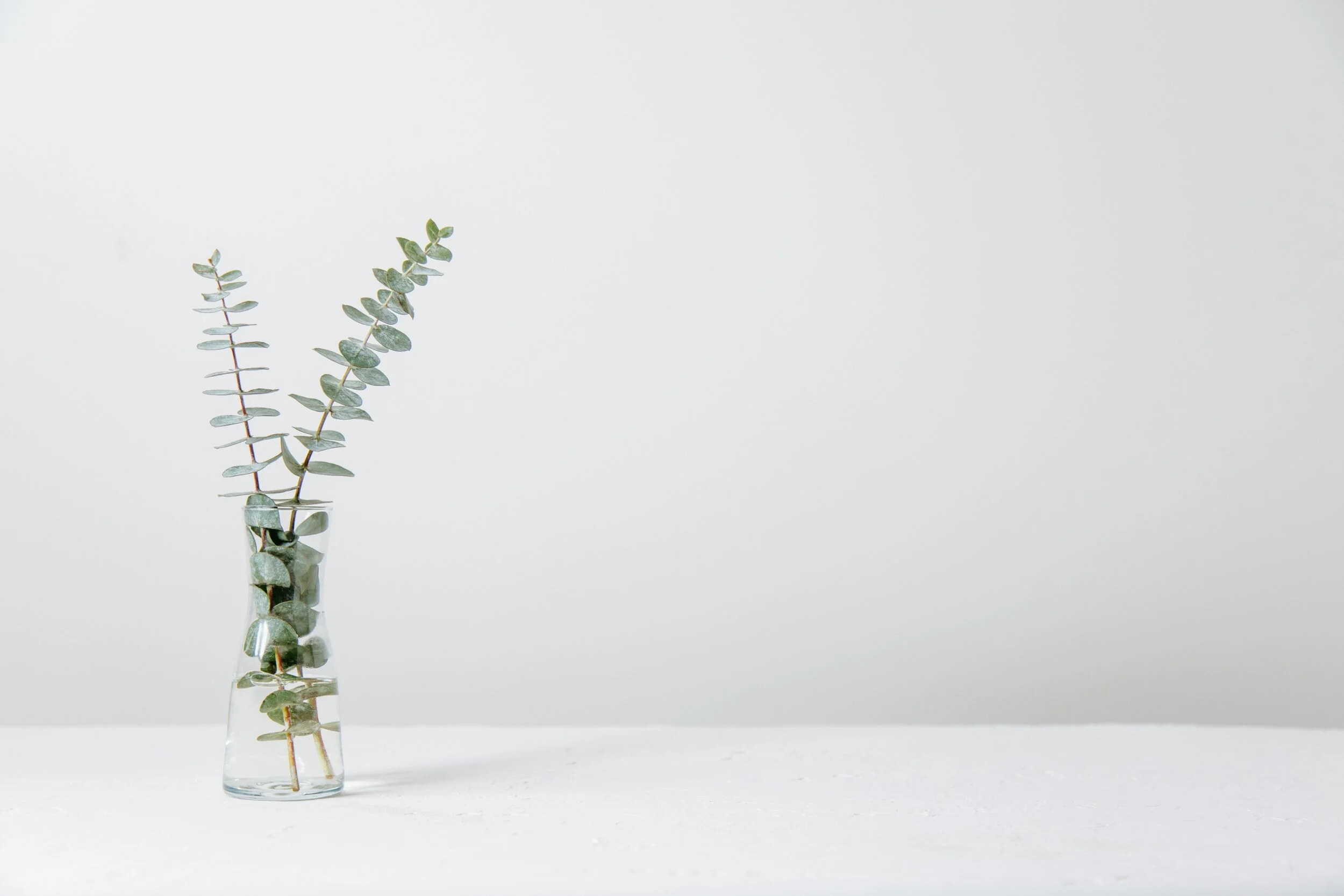Clients often come to me in the middle of a big decision: whether or not to pursue a career change, go back to school, accept a certain offer, etc.
First, I encourage you to destroy the idea that you will ever "know" with 100% certainty what you should do next, or that there is one "right" direction at all. However, there are decisions and lives that will feel more fulfilling, authentic, and satisfying than others, and there are many different ways of tapping the information and intelligence that will guide you closer to them.
We call these different ways of knowing…
From "what" you want to be to "who" you want to be when you grow up
It can be all too easy to unconsciously define ourselves by our careers. I'm a "doctor," an "artist," a "founder," an "engineer"...
In a lot of ways our careers do reflect a lot about who we are and can give us an incredible amount of personal purpose. But at the end of the day, you are not an [insert role]. You are [insert name].
Why are you where you are today?
The very first journaling exercise I have people in my Intentional Careering program do is answer: Why are you where you are today?
Sounds simple right? But have you really thought deeply about it? Is where you are today a result of intentional action, or lack of action? What choices along the way did you make with the best information you had, or the best intentions you had at the time? And if you're feeling unsatisfied, why? What part of you is confused? What answers are you still looking for?
What success actually looks like
I often like to ask people I'm coaching: Which of these looks like a more interesting life when you step back at the end of it?
Because many of us have been conditioned for so long in binary and linear thinking, we hate the idea of life as a "jungle gym." We want to get to the "top" of our ladders - to that very small square inch we consider "success" - and we want to get there now…
Ikigai
Questioning where you're ultimately headed in your career? The ikigai is an exercise I did when trying to figure out the next direction in my own. Here’s how you can, too:
Create a Venn Diagram with 4 overlapping circles (I admit 4 is messy, so recommend using a cup to aid your artwork!) Label each circle with the following…
Balancing lifestyle and career
Build your career around your lifestyle, not your lifestyle around your career.
Have you ever stopped long enough to consider the difference? When we grow up with the question what, rather than who, we want to be when we grow up, it can become easy to conflate the career we want with the lifestyle we want without really realizing it. In fact, the career you want and the lifestyle you want can be really different, and when they come in conflict, intentional choices and compromises sometimes have to be made.
Uncharted territory
While I’ve been hesitant to add more to the current conversation around Coronavirus for many reasons, not least that I am not an expert, and I am especially not an expert on the wide range of ways people from all walks of life are being affected, as I’ve taken call after call these past couple weeks, it has become clear that between layoffs, hiring freezes, and the great uncertainties of how to plan around so many unknowns, we could all use a few more words of hope and comfort as it relates to the future right now, especially those of whose careers are currently up in the air. While I have encouraged many who have been able to keep their jobs and work from home to use this time for more intentional planning and personal reflection, for many in the middle of a transition already this may simply not be a reality. And so I wanted to offer just a few thoughts that I hope will help some of you who are feeling the weight of a changing job market, even if they cannot necessarily speak perfectly to all.
Does your life have a mission statement?
Something I’ve been reflecting on quite a bit recently (yes, also in light of reading Designing Your Life), is my life’s “mission.” The thing that drives the choices I make in everything from my career to my free time, and I have to say, it never fails to be incredibly motivating every time I return to it.
In my Intentional Careering course, I have our exercises culminate into a final “career” mission statement, which serves as a guide to provide direction and inspiration, but is also flexible enough to apply to many potential roles (including the one you might currently be stuck in). I generally propose coming to one by putting together your personal strengths and unique gifts with a greater aim or goal.
But I’ve recently been taking it one level higher and more largely framing the mission of my life - a statement of intent that reflects my fundamental beliefs about the world, a framework under which my work and the rest of my life falls, and an idea that captures how I personally view the meaning of my life (for now, anyhow)…
Designing your life
I recently picked up a copy of Designing Your Life by Bill Burnett and Dave Evans - in part because it felt like a slightly more inspirational balance to some of my heavier reading in grad school, and in part because I thought it would be a helpful resource to eventually offer others or integrate into my lil’ career course.
I was excited to return to some of the exercises I had done throughout my whole quarterlife crisis, such as really intentionally outlining what my priorities were (i.e. work, relationships, health, spirituality…) and making sure they were in balance, but as I opened the book I found myself thinking: “Haven’t I done this already?”
Are you An optimist or pessimist? How changing negative thinking can significantly affect your happiness
Yes both optimists and pessimists alike have tended to earn bad reputations in different ways over time - from the Debbie Downer or cynical New Yorker scrooging through life, to the Pollyanna type that gets into trouble for being unrealistic and naive.
But when we dig a little deeper into the actual differences in mindset between more optimistic people and more pessimistic ones, we start to see how we, too, are constantly choosing between the subtle differences in these approaches in our everyday challenges and decisions, and just how tangible the effects of two very different perspectives can have on our greater lives.
Positive psychology & what it means to flourish
I’ve spent the last several months pouring over research, trialing out various activities and “interventions,” and writing dozens of journal entries, papers and reflections in a graduate course called “The Science and Application of Positive Psychology” offered through Harvard.
Still in the midst of a quarter-life crisis and career change, I signed up for the class because I knew I wanted to pursue a path somewhere in this large and mushy arena they called “positive psychology.” I was also so energized by my yoga teacher training and recent explorations in self care, mindfulness and meditation, that I developed an insatiable desire to learn and understand all the science and theory that was out there behind it.
Embracing the Jungle Gym
“Sometimes it’s ok to just be on time.”
Have you ever stopped long enough to notice that for some reason we’re always in this huge rush? If we’re not rushing to get to the top of the ladder, we’re rushing to have kids and get them to piano, or rushing through yoga to check it off the list. It’s as if the narrative we’ve been told for so long to “get ahead” has birthed this silent pressure looming overhead, regardless of what we're doing. But the more we rush to fit “more” in, the less we’re actually present enough to enjoy any of it.
Going With the Flow
“If, when swimming, you are caught in a strong current, it is fatal to resist. You must swim with it and gradually edge to the side. One who falls from a height with stiff limbs will break them, but if he relaxes like a cat he will fall safely. A building without “give” in its structure will easily collapse in storm or earthquake, and a car without the cushioning of tires and springs will soon come apart on the road.” - Alan Watts
The Road Less Traveled
People often talk about the road less traveled because of its wild unknown, a unadulterated challenge whose pursuit is worth the reward.
But sometimes I wonder if many of these paths are less taken not because they’re harder, but simply because their great beauty is often lost on us. Right beneath our noses, yet never enough for our ever increasing preoccupations with the hustle and bustle of our busy lives.
Chasing Rainbows
Did you know that if you chase a rainbow, you’ll never actually be able to catch it? It’s an optical illusion based on your viewpoint - quite literally your perspective.
As you move closer, it will just keep getting farther away (I know, I’ve tried it!) And so, too, are many of our other “chases” in life. As we get close to reaching whatever we think will finally make us happy, we find that in our new location, our destination has only moved farther out. So we learn the hard way that the “pot of gold” at the end - things like money or achievements or whatever it may be - often lead to a never-ending cycle, and a never-ending chase.
Defining Success
Have you ever taken a big enough step back to actually look at what definition of success is driving you? Maybe you’ve always just assumed it was the top of your career path. Recognition. Family. Money. Early retirement.
What if your definition of success was simply to be happy? Would you be doing as good of a job at it as you are in your day job right now? Would you need to keep chasing something 10 out?
What is Positive Psychology, And Why Am I Studying It?
Burnout. Anxiety. Quarter life crises. These aren’t just the challenges I’ve faced over the past few years, but they’ve also been the problems that have slowly begun to define our generation. Many of us have worked tirelessly toward dream jobs only to wrap our entire identities up in our work, internalized productivity so much that compromising even our self care routine is guilt-inducing, and watched countless others “successfully” juggle side hustles, passion projects, exotic trips, and daily salt baths across social media.






















